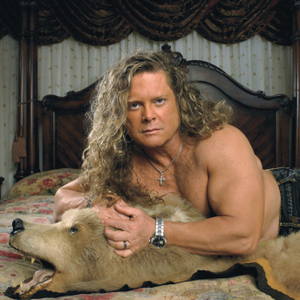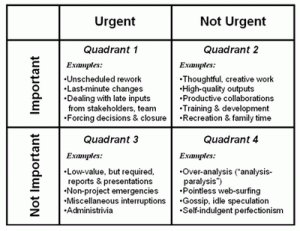One of my side ventures?
Writing bios for fitness guys, either for their websites or whatever product or book they happen to be launching.
It’s fun work and I enjoy doing it.
When I eventually see the finished bio in print, 90% of the time it’s different from what I’d sent them. They either emphasize a service they offer or perhaps play down an accomplishment that I thought was cool. Most also take out a joke or two, probably just to piss me off. Oh well.
I’m always relieved when they change stuff a little. After all, they know themselves way better than I ever could. I’d find it weird if they didn’t change at least something.
Sometimes, however, the changes made make the bio seem overly pimped.
Seeing a fitness article published suddenly makes them “internationally recognized,” having a client who played Iago in the Sacramento Dinner Theater’s rendition of Othello makes them “a trainer of the stars.”
A waiting list for new clients makes them “sought after” (that’s my favourite — it makes me think Dog the Bounty Hunter is about to kick in the door and Taser them right in front of an unsuspecting 3 o’clock boot camp class).

Hey, I get it. No one is being dishonest — it’s just marketing. And I do it too, in my own way.
But is it indicative of a bigger issue?
Richest Trainers in the Galaxy
An article about the richest fitness trainers recently raced through the social media landscape.
The top-10 was a veritable of who’s-who of names your mom would recognize, including Tony Horton, Jillian Michaels, Tracy Anderson (everyone’s favorite), and Tony “Technique!” Little, who as I remember topped the earnings list (I blocked that depressing thought from my memory).

Most fitness peeps had similar reactions – how could these goofs, who seemingly know so little about health and fitness, get so stinking rich?
I’d argue though, that the subtext behind the reactions is different. It’s more like, “I’m a way better trainer, I know a hell of a lot more, and I actually help people – so why aren’t I rich and famous?”
I can’t tell you why you’re not rich and famous.
I can tell you that you’re losing the plot.
Quadrants
In his classic time management book, The 7 Habits of Highly Effective People, author Steven Covey says that most of our daily tasks can be divided into one of four quadrants.

In my opinion, fitness professionals and their skill-sets versus their level of success (namely financial and fame) can be broken down that way as well.
Quadrant #1: Average Skill, Average Success
Quadrant #2: Average Skill, Above Average Success
Quadrant #3: Above Average Skill, Average Success
Quadrant #4: Above Average Skill, Above Average Success
Here’s the breakdown.
If you train clients for a living (or in person or online) you’re probably in Quadrant #1, Average Skill, Average Success. Don’t be offended, you’re in good company. It includes a lot of smart, hard working pros with the right education and experience and a track record of getting results.
You’re just not on the cutting edge or considered top of your field. It’s okay — most aren’t.

“Average success” can also be a pretty good place. It’s living well, paying your bills, enjoying some luxuries, and maybe even putting away a few bucks for retirement (I’m envious by the way).
You may not be regarded as number one at what you do but you still earn a comfortable wage pursuing your passion and helping people. Nothing wrong with that. That’s Q-1.
Quadrant #2, Average Skill, Above Average Success, is where most ass-hat celebrity trainers are slotted. Some (dare I say most) seem to know far less about training than even a part-time trainer at Planet Fitness (in the case of Tracy Anderson, that’s being generous) and generally set the industry back a decade every time they open their mouths.

Yet they’re enormously successful marketers and have millions of followers, not to mention stinking rich. Fortunately, there aren’t many in Q-2, though it’s sure hard escaping their influence.
Most hard working folks in Q-1 have nothing but disdain for the Q-2 types, which as you’ll see is ironic.
Quadrant #4, Above Average Skill, Above Average Success, is where everyone wants to be. They’re the true innovators in the field whose work changes how everyone else approaches their craft or at least they’re the top dogs in very specific niches. They’ve got to where they are through years of hard work and perseverance and as a result have built successful businesses.
It’s esteemed company and like Q-2 there aren’t a lot of seats at the table. In terms of examples, since appearances can be deceiving – I know guys who appear extremely financially successful online when in fact are from it – I’ll only vouch for those I know personally or have worked with.

In powerlifting, it’s Dave Tate. In bodybuilding, John Meadows. For training baseball players, Eric Cressey. For training celebrities you’ve actually heard of, Joe Dowdell. For performance nutrition, Alan Aragon, and for all things hypertrophy, Brad Schoenfeld.
Of course there are many other names and other niches — the point isn’t to name names or kiss asses (they don’t need it, trust me), but to make the distinction that like the military there’s a lot of soldiers but few generals.
Quadrant #3, Above Average Skill, Average Success is the bastard stepchild of the industry — nobody wants to be there. However, I’d argue this is where some of the greatest work is being done. Fame typically eludes these types as they’re not good at (or comfortable with) marketing, or their work is too inaccessible for the media to compress into a 30-second sound bite. To borrow a very tired phrase, they’re often just ahead of their time.
I don’t know many who’d fit this bill, as part of the requirement is relative obscurity. One example that I can vouch for is the Manimal, Derek Woodske.

His knowledge of periodization and program design is unparalleled. If I were to turn over the keys to my own training to anyone it would be him. But you’ve probably never heard of him. And he probably doesn’t care.
Now back to the point.
Most everyone in Q-1 seems to want to dominate and kick ass, marketing and scheming in hopes that they can race to the top and claim a spot in Q-4 with the leaders (preferably overnight and often without doing much in the way of original or meaningful work).
They don’t even consider getting to Q-3 – just becoming the absolute best at their craft – a goal. In fact, a lot would consider that as failure.
It’s wrong.
I’ve been around a long time. I can pretty much guarantee if you make getting to Q-4 your ultimate motivation without doing the requisite work and paying your dues, you’ll never get there.
You may blow up the social media metrics and have the most Facebook friends or Twitter followers and the goofiest self-anointed title. You might even sell some products and live comfortably. And God bless you if you do, but that level of industry respect you crave will elude you.

You’ll never get the industry credibility cause that must be earned. You can’t “hack” it. Ask anyone who has a PhD or a Masters degree (or both, like the surly Canadian above) or has spent 15 years clocking client hours, counting macros, writing millions of words, or just straining under the heavy bar.
It sucks balls. But it’s necessary.
Sure, you can hard sell and bamboozle the lay public and make some decent dough, but your peeps in the business will always know what’s up.
And if you really attack it, as in abandon all scruples and go full douchebag into the marketing, the best you’ll reach is Q-2 — the huckster TV trainer you say you hate, the type that “holds the industry back.” And even a rich person has to look at him or herself in the mirror every morning.
On the other hand, if you make getting to Q-3 your goal — being the absolute best at your chosen niche — while I can’t guarantee fame or fortune, I can guarantee you’ll eventually do really good work. Inspiring work. The type of work the top guys in Q-4 look at and think, “Man, I could learn a lot from that guy.”
So who will they help take a seat beside them?
Look I get it. It’s noisy out there. No one is going to build your brand for you. It’s on you to stand out from the legions of folks doing almost the exact same thing. You gotta network, outwork, and out-hustle.
Still, when it comes to the actual work, don’t do it louder.
Do it better.
#Humility2014
Bryan

